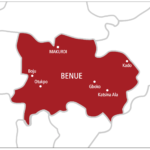
“In those days there was no king in Israel; and everyone did whatever he wanted.” – Judges 17:6.
Nigeria today is a typical example of ancient Israel when there was no king and everyone did as he pleased. For more than three times when the above bible text is recounted in the Book of Judges, something horrible happens, to show that the absence or old age or infirmity of a king comes with severe consequences and at a great price for the kingdom. It is often a time when kingmakers and powerbrokers take advantage of the king’s predicament to foist their own will on the kingdom. All sorts of bitter intrigues, betrayals, conspiracies and power play take the centre stage of governance, thus weakening the kingdom and opening it to vicious attack from inside and outside forces. In the end, it is the mass of ordinary people who suffer. That is where Nigeria is today.
We seemed to have returned full circle to the year 2010 when former President Umaru Musa Yar’Adua tied the nation down to his infirmity and plunged the country into a political crisis of monumental proportions. Addressing members of the National Unity Forum (NUF) who visited him at his Kaduna residence on March 9, 2010, retired General Muhammadu Buhari urged the federal executive council to save the nation from agony by declaring then ailing president Yar’Adua incapacitated, in order to set machineries in motion for his impeachment by the National Assembly. This, he said, was the only solution to the political logjam in the country at the time.
Barely seven years later, we have found ourselves in similar circumstances, with another ailing president who seemed determined to tie the fortunes of over 180 million people to his bed of infirmity. Buhari has defiantly refused to heed the pleas of voices of reason urging him to relinquish power and attend fully to his health. Members of his cabinet, governors and party stalwarts are spending huge public resources to visit him in London, at a time when the nation’s economic fortune is on a slippery slope. Obviously, the famed man of austerity and incorruptible integrity is certainly not bothered about where the funds for their travel expenses are coming from. August 16 2017 marked 100 days since Buhari began his medical vacation in the U.K; and as I write, there is still no official disclosure of the nature of his illness.
Buhari’s media men say that the health of the president is a personal matter and that Nigerians are over-reaching themselves by asking to know the name of the ailment afflicting their leader. However, they find nothing wrong with using public resources to fund his medical safari. We pay to treat a man who doesn’t think we need to know what is wrong with him. If that is not the height of executive arrogance and audacious insolence, I don’t know what else to call it. A government that promised to change the manner in which the business of statecraft is conducted seems stubbornly stuck in its hardened and impervious ways. It is a way of saying that the mantra “change begins with me” is good for the people, but not for their leaders.
66-year-old Charles Oputa, alias Charlie Boy and his cohorts have started a daily protest, similar to the “Bring Back Our Girls” coalition, urging the ailing president to ‘return or resign.’ Their mantra is ‘Our mumu don do.’ Yet, when they took their demonstration to Wuse market in Abuja on Tuesday, August 15 2017, they met with mob reprisal from Buhari’s sympathetic acolytes, a warning sign that some Nigerians are still very much comfortable with the status quo, and that if anything untoward happens to Buhari, Nigeria might be engulfed in a bloody crisis. A few days earlier, some members of the group suffered police brutality when they gathered at the Unity Fountain for their public demonstration, another sign that some freedoms of association are outlawed.
In the mean time, Boko Haram has continued its relentless onslaught against innocent Nigerians in the North East, killing scores of people regularly, while a helpless military looks on in exasperation and confusion. Badoo cultists in Lagos are having their field day, while ruthless kidnappers and daredevil armed robbers have upped their tempo. Unknown gunmen who effectively launched a bloodbath during Sunday Mass in a Catholic Church at Ozubulu are still at large. Southern Kaduna is still seething with anger, hate, animosity and impunity. Nnamdi Kanu and his mammoth IPOB followers seem determined to hold the nation hostage; a sign of the irrepressibility of voices calling for a change in the way Nigeria is structured and governed. On Monday, August 14 2017, ASUU embarked on an indefinite strike action, thus placing the education of Nigeria’s future in serious jeopardy.
The daily carnage on our roads must certainly be counted among the gravest crimes against the human person in contemporary Nigeria. On July 28 2017, a fully loaded petrol tanker ran into an 18-seater commuter bus and exploded in flames at Felele-Lokoja, claiming the lives of over a dozen persons. Photos and video footages of the charred and mangled bodies of the victims, which went viral on the social media, showed the desperate struggle of human beings to survive, before they finally succumbed to the fire. Yet, it is over a decade since the contract for the dualization of the Abuja-Lokoja road was awarded: another symbol of the rank corruption that has decimated human lives in Nigeria. But is the government bothered? I am not too sure. Those who should care have access to private jets and fully secured SUVs, with ambulance and security, for their travels. Only ordinary Nigerians suffer.
The reality of Nigeria today is of a people who have been battered and whipped into submission by the harsh socio-economic conditions. Millions are caught between starvation and suicide. These are not the sorts of people you’d expect to protest against the callousness of government. Nigerians have perfected the art of low expectation from their leaders. A situation where ‘anything goes’ is just good enough. By some inexplicable reasons, we are incredibly comfortable and excessively patient with shocking levels of mediocrity and incompetence. No one wants to break the tiresome circle of docility and subjugation. We take pride in our resilience. Our ability to forget and quickly bounce back from conditions and circumstances that cripple people in other climes is listed among the top of our natural endowments. Yet this typical Nigerian resilience has become an excuse for stupidity and irresponsible followership, unwilling to hold leadership to account.
On the occasion of Buhari’s 100 days in London, The Guardian Newspaper listed seven pains of President Buhari’s medical vacation. The most devastating pains are the lack of faith in our country’s health institutions that it has caused and the bad example it has set for other elected public officials, in addition to the tension it is causing in the country. So, should Buhari resign? That should be the reasonable thing for a man of honour, whose famed personal integrity has been used to taunt us beyond acceptable levels of hyperbole. This is the only way the ailing president, who has stayed away from his duty post for a combined period of six months, can spare the nation the negative fallouts of his obstinate hold on to power. For a man whose incapacitation was visibly felt in his voice as he frantically struggled to speak in Hausa language during a radio broadcast at the last Eid-el celebration, and in his thoroughly emaciated physique in recent photographs, nothing else will avail.
But will Buhari resign? A man and his personality cult of followers, who think, live, and behave as if the Nigerian presidency is their birthright, and that Buhari is doing the nation a great privilege by occupying the position, to contemplate such a move might never come. Should he even dream about it, emissaries will be sent to him to ask him if “he is out of his mind.” After all, even Jesus was said to be in such a state when he went back home and kept working tirelessly to attend to the crowd of people that swarmed around him, without taking a break to eat (see Mark 3:21). The only difference is that in the present case, Buhari is not working and has stopped the nation from working, but is eating comfortably from the nation’s treasury.
So, where are our prophets?
Ojeifo is a priest of the Catholic Archdiocese of Abuja.



